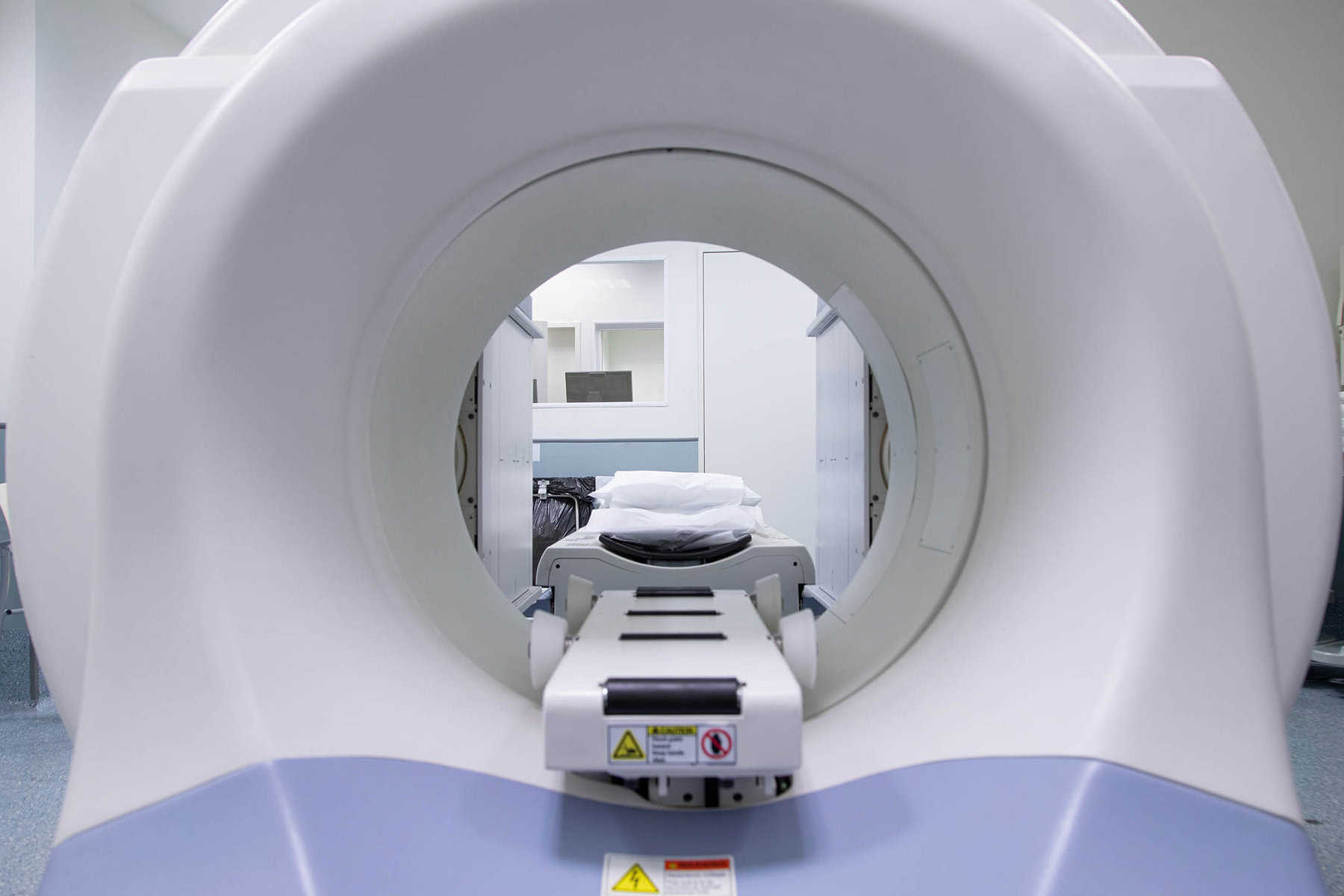Comprehensive Care for Recurrent UTIs
Struggling with recurrent UTIs? Discover effective diagnosis and treatment at The Forbury Clinic. Submit an enquiry for a consultation and get expert care to prevent and manage UTIs.

Overview
Recurrent urinary tract infections (UTIs) are a common and often distressing condition that affects many individuals, particularly women. These infections occur when bacteria enter the urinary tract, leading to symptoms such as painful urination, frequent urge to urinate, and lower abdominal pain. Left untreated, recurrent UTIs can lead to more serious health issues, including kidney infections. Addressing recurrent UTIs promptly is crucial for preventing complications and improving quality of life. At The Forbury Clinic, we specialise in diagnosing and treating recurrent UTIs with a patient-centred approach. Our experienced team uses advanced diagnostic tools and tailored treatment plans to provide effective solutions, helping you achieve lasting relief and optimal urinary health.


What are Recurrent UTIs?
Recurrent urinary tract infections (UTIs) refer to multiple episodes of infection in the urinary tract, typically defined as two or more infections within six months or three or more within a year. The urinary tract includes the kidneys, ureters, bladder, and urethra. Recurrent UTIs can cause a range of symptoms, including a strong, persistent urge to urinate, a burning sensation during urination, cloudy or strong-smelling urine, and pelvic pain. While UTIs are more common in women due to their shorter urethra, men can also experience recurrent infections, often related to prostate problems. Understanding and identifying the patterns and triggers of recurrent UTIs is essential for effective prevention and treatment.
Causes and Risk Factors
Recurrent UTIs can result from various factors, and understanding these can help in effective diagnosis and management:
Bacterial Persistence:
The same strain of bacteria may linger in the urinary tract despite initial treatment.
Anatomical Abnormalities:
Structural issues in the urinary tract can impede the complete emptying of the bladder, promoting bacterial growth.
Immune System Deficiencies:
A weakened immune system can make it harder to fight off infections.
Hormonal Changes:
Changes in hormone levels, particularly in women during menopause, can affect the urinary tract and increase infection risk.
Sexual Activity:
Sexual intercourse can introduce bacteria into the urinary tract.
Use of Certain Contraceptives:
Diaphragms and spermicidal agents can contribute to bacterial growth.
Catheter Use:
Long-term use of urinary catheters can increase the risk of infection.
Chronic Health Conditions:
Conditions like diabetes can increase the susceptibility to UTIs.
Risk Factors
Gender:
Women are more prone to UTIs due to their shorter urethra.
Age:
Postmenopausal women and older adults have a higher risk.
Sexual Activity:
Frequent or intense sexual activity can increase the risk.
Personal History:
Individuals with a history of UTIs are more likely to experience recurrent infections.
Urinary Tract Abnormalities:
Congenital or acquired abnormalities can contribute to recurrent UTIs.
Diagnosis
Diagnosing recurrent UTIs at The Forbury Clinic involves a thorough evaluation to determine the underlying causes and contributing factors. Our specialists use a combination of advanced diagnostic tools and personalised assessments, including:
- Medical History and Physical Examination: A detailed discussion of your symptoms, medical history, and any contributing factors, followed by a physical examination.
- Urine Tests: Urinalysis and urine culture to detect bacteria, blood, or other abnormalities in the urine. This can include enhanced tests with our trusted partners to detect deep embedded infections.
- Imaging Tests:
- Ultrasound: An imaging test to visualise the kidneys and bladder and identify any structural abnormalities.
- CT Scan: Provides detailed images of the urinary tract to detect stones, tumours, or other issues.
- Cystoscopy: A procedure where a thin tube with a camera is inserted into the bladder through the urethra to inspect the bladder and urethra for abnormalities.
- Urodynamic Testing: Assessing how well the bladder and urethra store and release urine, which can help identify issues with urine flow or retention.
These diagnostic methods allow our team to accurately identify the cause of recurrent UTIs and develop a tailored treatment plan.

Treatment for Recurrent UTIs
At The Forbury Clinic, we offer a comprehensive range of treatment options for recurrent UTIs, tailored to the specific needs of each patient. Our approach combines the latest medical advancements with compassionate, patient-centred care:
Antibiotic Therapy:
Short or long-term courses of antibiotics to eliminate the infection and prevent recurrence. Prophylactic antibiotics may be prescribed for those with frequent infections.
Lifestyle Modifications:
Recommendations to reduce UTI risk, such as drinking plenty of water, urinating after intercourse, and avoiding irritants like certain soaps or sprays.
Cranberry Supplements:
Some evidence suggests that cranberry products can help prevent UTIs by preventing bacteria from adhering to the urinary tract.
Probiotics:
Taking probiotics may help maintain a healthy balance of bacteria in the body and reduce the risk of UTIs.
Hormone Replacement Therapy:
For postmenopausal women, topical oestrogen therapy may help reduce the risk of UTIs by improving the health of the urinary tract.
Minimally Invasive Procedures:
Urethral Dilation: A procedure to widen the urethra if narrowing is contributing to recurrent infections.
Bladder Instillation: Introducing medication directly into the bladder to treat and prevent infections. at the source, without the side effects to the rest of the body.
Surgical Options:
In cases of anatomical abnormalities, surgery may be necessary to correct the underlying issue.
Innovative Treatments:
The Forbury Clinic offers cutting-edge treatments, such as immune boosting UTI Vaccines, laser therapy and biofeedback, to provide effective relief for recurrent UTIs.
Our multidisciplinary team ensures that each patient receives the most appropriate and effective treatment, enhancing their quality of life and managing their condition with precision and care.
Managing Recurrent UTIs
Managing recurrent UTIs involves a combination of medical treatments and lifestyle adjustments to control symptoms and improve overall health. At The Forbury Clinic, we provide comprehensive care and guidance to help manage this condition:
Hydration:
Drinking plenty of water to help flush out bacteria from the urinary tract.
Dietary Changes:
Including cranberry products and probiotics in your diet to help prevent infections.
Proper Hygiene:
Maintaining good personal hygiene to reduce the risk of bacterial infections.
Urinating Regularly:
Avoiding holding urine for long periods and urinating after sexual intercourse to flush out bacteria.
Avoiding Irritants:
Steering clear of products that can irritate the urinary tract, such as certain soaps and feminine sprays.
Monitoring Symptoms:
Keeping track of symptoms and seeking prompt medical attention if a UTI is suspected.
These management strategies aim to complement medical treatments and provide a holistic approach to improving symptoms and overall well-being.
Complications
While recurrent UTIs can often be managed effectively, untreated or persistent infections can lead to several complications that may affect overall health:
- Kidney Infections: Recurrent UTIs can lead to pyelonephritis, a serious kidney infection that can cause permanent damage.
- Bladder Damage: Chronic infections can damage the bladder, leading to reduced function and other complications.
- Sepsis: In severe cases, the infection can spread to the bloodstream, leading to a life-threatening condition called sepsis.
- Decreased Quality of Life: Frequent infections can cause significant discomfort, anxiety, and disruptions to daily activities.
Prognosis
The prognosis for recurrent UTIs largely depends on the underlying cause and the effectiveness of the treatment plan. With timely diagnosis and appropriate treatment, many individuals can achieve significant improvements in symptoms and overall health. Regular follow-ups and ongoing management are crucial to prevent complications and maintain urinary health. At The Forbury Clinic, we are dedicated to guiding our patients through their treatment journey with comprehensive care and support, ensuring the best possible outcomes and a higher quality of life.


Why Choose The Forbury Clinic?
Choosing The Forbury Clinic for your recurrent UTI treatment ensures you receive exceptional care from a team of experienced specialists. Our clinic is known for its expert medical staff who are dedicated to diagnosing and treating urinary tract conditions with precision and compassion. We use state-of-the-art diagnostic tools and the latest medical advancements to provide accurate diagnoses and innovative treatments tailored to your specific needs. Our patient-centred approach prioritises your comfort, privacy, and overall well-being, offering comprehensive support throughout your treatment journey. At The Forbury Clinic, you can trust that you are in capable hands, with a dedicated team committed to helping you achieve optimal health and a better quality of life.